
1. Headline vs. no headline
Does having a bold and colorful headline at the top of your email content grab your subscribers’ attention and keep them reading? To find out, send two emails — one with a eye-catching headline and one without a headline. For example, let’s say you’re a fitness blogger, and you’re sending an email about the five stretches you recommend before a workout. You could run a split test with one email variant that has no headline and one email variant with a headline at the top of the email content that says, “5 pre-workout stretches to prevent injuries.”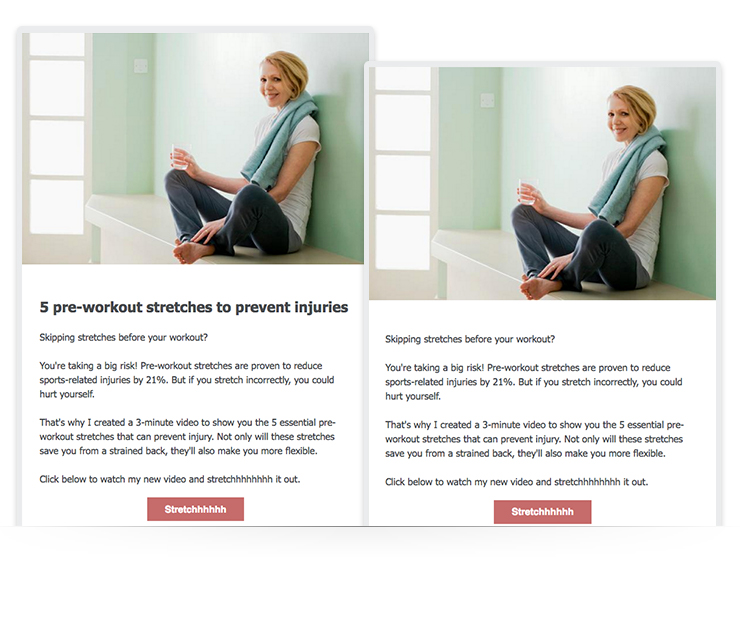 Pro tip: Like the email template from the example above? It's called Wane Light and you can find it in your AWeber account. (Don't have AWeber? Try it out free for 30 days.)
Pro tip: Like the email template from the example above? It's called Wane Light and you can find it in your AWeber account. (Don't have AWeber? Try it out free for 30 days.)
2. Personal salutation vs. no salutation
Do your subscribers like to feel that your emails were written specifically for them? Run a split test to find out! Try using their first name in the salutation of your email (for example, “Dear John,” “Hi John,” “How’s it going, John,” etc.) and see if you get a higher click-through rate. You can also incorporate someone’s name at the end of a sentence or in another natural (yet unexpected!) place in your email.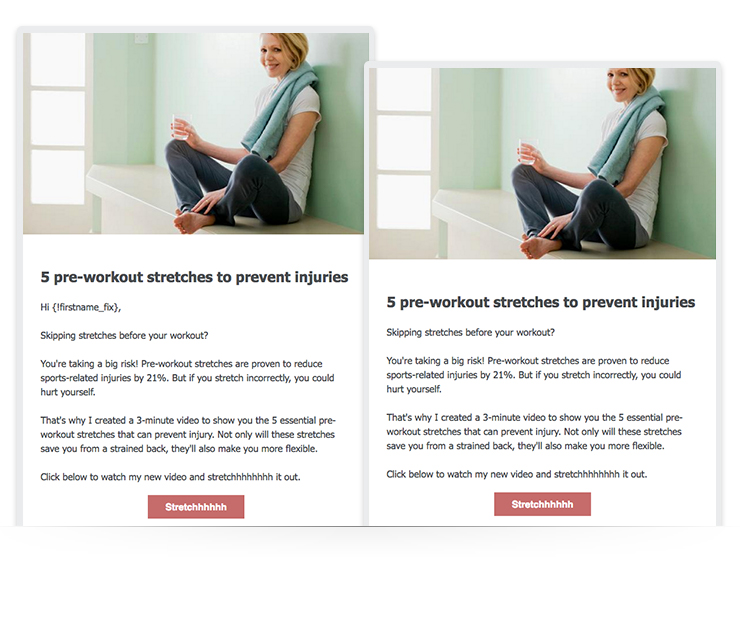 Pro tip: If you have an AWeber account, you can easily add a first name to your email subject line or content to personalize your messages.
Pro tip: If you have an AWeber account, you can easily add a first name to your email subject line or content to personalize your messages.
3. Images vs. no images
Are your subscribers visual people that like images in their emails? Or, do images distract them from your content and call-to-action? Create a split test where one email variant has an image and the other does not. Compare the results of your test and find out which your audience prefers.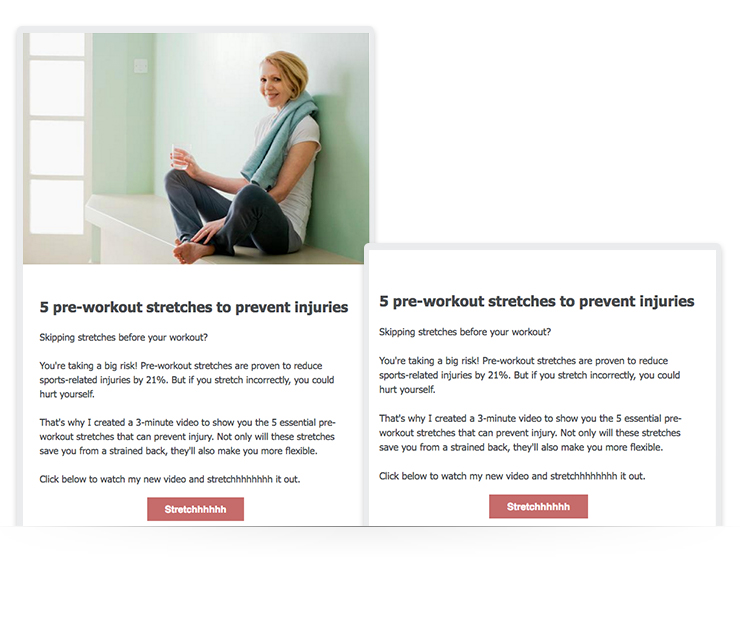 Related: How to Create Amazing Photos for Your Emails on Zero Budget
Related: How to Create Amazing Photos for Your Emails on Zero Budget
4. Long content vs. short content
Perhaps your subscribers like short emails that get straight to the point. Or, maybe they need more information before they’re ready to make a decision. Find out with a split test that compares two email copy variants:- a lengthy email that describes all the details of your offer
- a short and easily digestible email that summarizes the same information
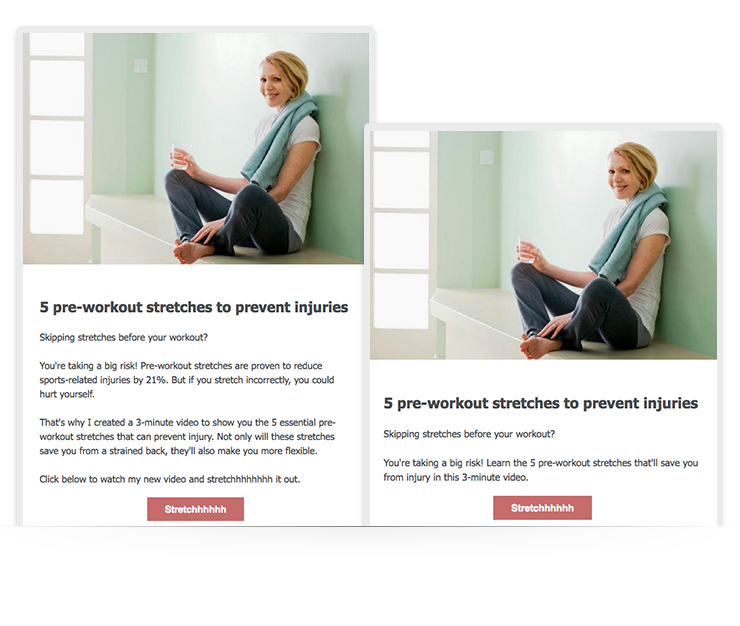
5. P.S. vs. no P.S.
Since subscribers often skim emails, including a P.S. at the end of your emails can be an effective way to boost your click-through rates. A subscriber might glance over your content, but carefully read the P.S. To see if this is true of your subscribers, send your first email variant without a P.S. and your second email variant with a P.S. at the bottom of your content.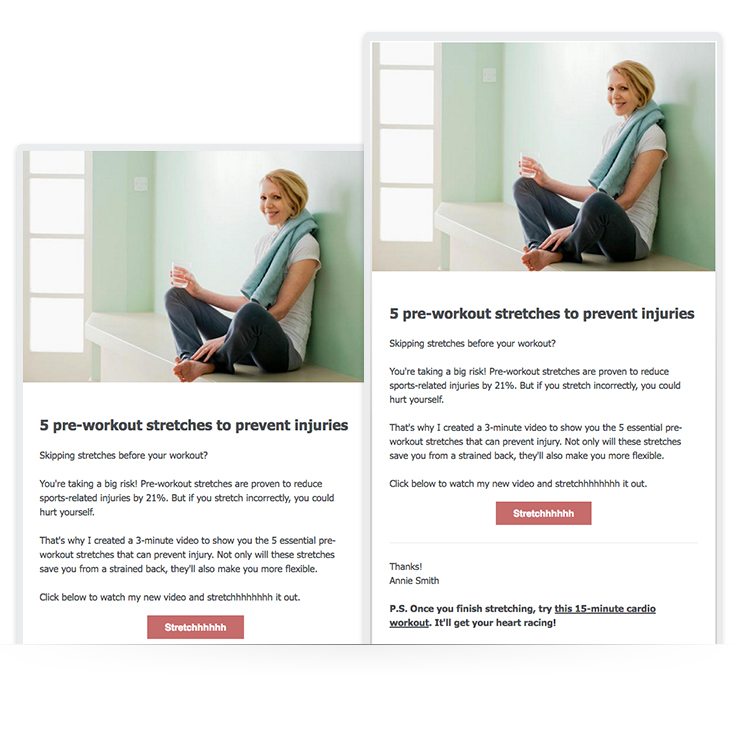
6. Call-to-action button vs. hyperlinked text
Are your subscribers more likely to click on a button or hyperlinked text? If you don’t know, a split test is a great way to find out! After all, if your call to action (CTA) isn’t optimized, you’re missing out on valuable clicks. Try two variations of an email — one with a button as a CTA and the other with hyperlinked text as a CTA. Just make sure to use identical text for both calls to action.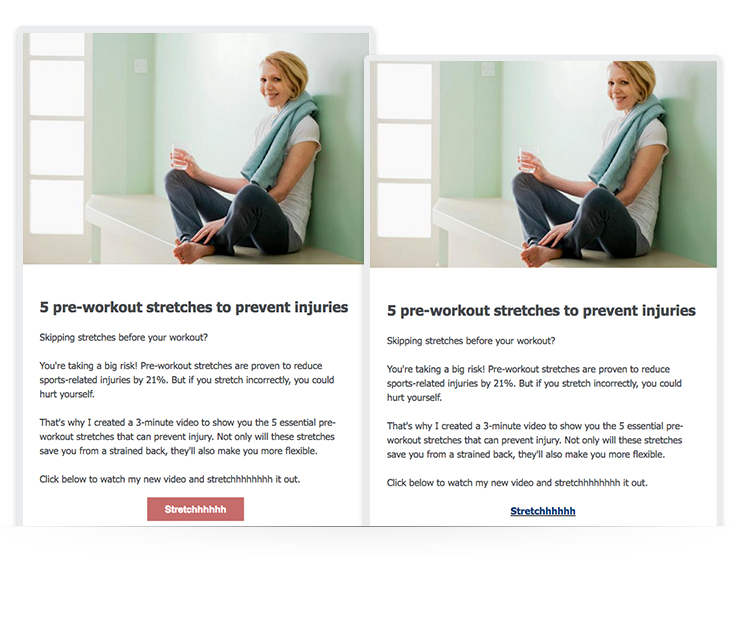 Related: Why You Need to Split Test Your Emails (and 4 Best Practices to Get Started!)
Related: Why You Need to Split Test Your Emails (and 4 Best Practices to Get Started!)
Start split testing
Now that you have a few tests to start with, you can begin improving your emails and your bottom line. Ready to discover even more tests you can use to optimize your email marketing strategy? Check out our free Minimalist Marketer’s Guide to Split Testing to learn everything you need to know to become a split testing master.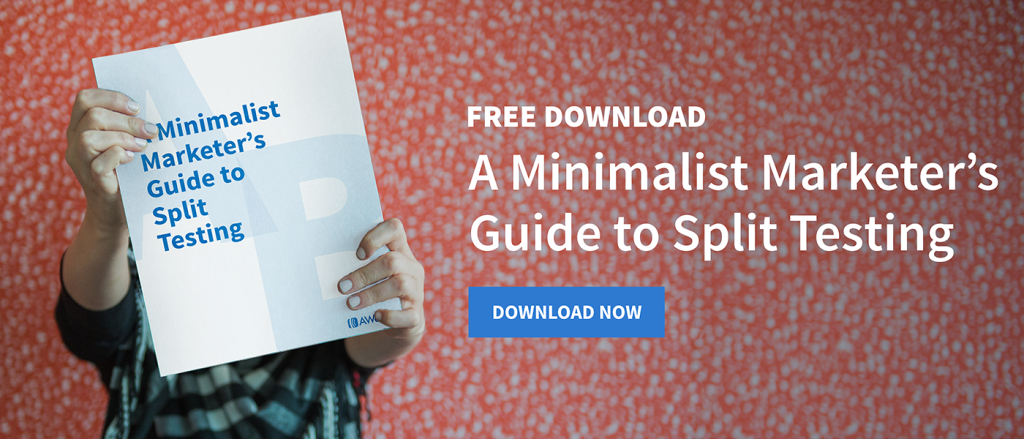
The post 6 Email Split Tests You Can Set Up in 1 Minute appeared first on Email Marketing Tips.
from Email Marketing Tips https://ift.tt/2NBeI20
via IFTTT
No comments:
Post a Comment